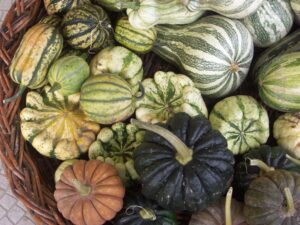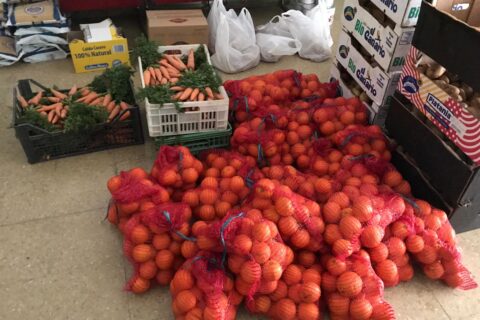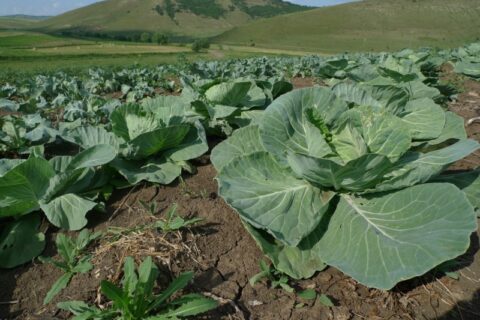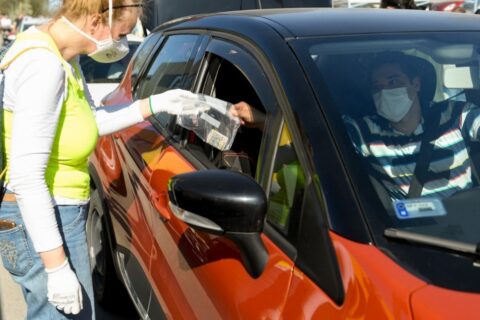Short description
Name of the initiative? Magház (Seedhouse)
Country Hungary
Region Countrywide
What kind of initiative Environmental, Biodiversity, Educational/training, Policy making, Community
Key words Sustainable seed systems, low input agriculture, agrobiodiversity conservation, heirloom
Success factors
Briefly describe what your initiative is about A seed saving network to educate and motivate others across Hungary to grow and preserve open pollinated heirloom plants and not only buy seeds from the shop.
The Story
In 2011 the Let’s Liberate Diversity meeting took place in Hungary and included a huge international seed swap. It was the first big seed swap in the country. Here and during other events I met some other Hungarian seed savers who became friends and in 2012 two of us visited Arche Noah in Austria. We were impressed with how professional it was and wanted to do something similar in Hungary. We were already involved in maintaining landraces and traditional varieties of plants whether we collected them from the countryside ourselves, inherited them from our ancestors or requested them from the National Gene Bank. During the summer of this same year six of us gathered to discuss and establish the frame of the future Magház (Seedhouse).
In Autumn 2012 we joined the 10 year anniversary of French movement Reseau Semences Paysannes – a 3 day international, inspiring event in the South of France. It was remarkable to experience how the French network organises itself and how local groups work.
“People abandoned the traditional ways quite early in our country because the seed industry is so strong.”
Although heirloom seeds are maintained in the Gene Bank, the knowledge is not – people abandoned the traditional ways quite early in our country because the seed industry is so strong.
Inspired by our visits to community seed banks in Austria and France we set up our organisation with a website for knowledge and seed sharing and at the next Let’s Liberate Diversity meeting in Switzerland in 2013 we were able to announce our new organisation ‘Magház’ to the European network.
Early on we established our website so people could find information. We made guidelines for home gardeners – how to save seeds and why it’s important. We now publish locations of seed swaps so people can find one near them. We try and be present at the swaps as much as possible, giving presentations and workshops and bringing our own seeds, motivating people to join our national network as well as establishing local ones.
We also work closely with the National Gene Bank. They gave us money recently to connect people with seeds on the ground level as they don’t have capacity for this. We encourage our members to participate in the Gene Bank’s project to send seeds to their place of origin and growers can report back how they perform. They have also commissioned us to republish an expanded version of the book: The Seed Savers’ Guide.
I also organised regular training workshops in my garden in Hungary.
In the beginning we could collaborate because it was a combination of friendship and the same interests. That was the triggering environment – we liked to be together discussing these issues. It’s still a friendly group but it’s no longer just the six of us so we can’t all be as close as the few of us who started it. People tend to come to seed saving from an agroecology background, so they are already interested in these issues.
“…it was a combination of friendship and the same interests. That was the triggering environment – we liked to be together discussing these issues.”
Magház has no geographical centre, because the six of us were living in four different regions. We were all working with our own collections. The central point is the website.
Funding is always a challenge. We often limit what we’d like to do because we don’t have the resources. When we do receive money, it is typically for printing a book or booking a venue, but not a payment for our work.
We are volunteers, so when there are big changes in your personal life, you don’t have the time to spend on the organisation. There have been ups and downs and we need to be patient through these.
“…when there are big changes in your personal life, you don’t have the time to spend on the organisation.”
Organic farmers are already overwhelmed. They can’t afford the salaries people expect. They must manage with financial limitations, and they don’t have a lot of mental or physical room to experiment with traditional varieties. Even some CSAs I began working with had to give it up. I’m currently organizing an organic seeds expert group in Hungary. We will do the experimentation so we can offer farmers the varieties that are reliable so they themselves are not risking too much.
We must be patient. I moved to Belgium working on several H2020 projects, one of them is related to plant genetic resource conservation and management. Over the past year we have more volunteer members and are hoping to restart the seed-saving workshops.
“In the beginning we wanted to do everything for free…”
In the beginning we wanted to do everything for free, but then we realised people don’t appreciate things they get completely for free, so slowly we started to introduce registration fees for members, a cost for training, etc. This helps us improve the network and organise other events, although it doesn’t cover all our needs.
We are currently working with Arche Noah, ProSpecieRara And Danish Seed savers on guidelines for anyone wanting to set up a seed saving organisation – what to expect, governance, financial aspects, what activities you might perform.
In terms of market, Hungary is competing with Romania, Ukrania, Bulgaria and Serbia where people are even less aware of the value of organic or heirloom. You must find your own solutions in your own region, because what fits to Austria might not fit to a neighbounrhood country.
“You must find your own solutions in your own region, because what fits to Austria might not fit to a neighbourhood country.”
I found my profession! I’m a biologist but I was working in the field of immunology. Now I love agroecology. The people in the field of agroecology are completely different – I find more friends and like-minded people, those who are conscious about sustainability.
After the first seed swap in Hungary in 2011 there are more and more each year.
It’s hard to access what impact Magház has. I don’t feel we are reaching too many people yet, but I think it will come in the next two, three or five years.
Additional information
https://www.maghaz.hu/
https://www.communityseedbanks.org/
https://liberatediversity.org/
https://www.prospecierara.ch/
https://www.arche-noah.at/
—
Repository compiled by: Judit Fehér
E-mail contact: maghazinfo@gmail.com






